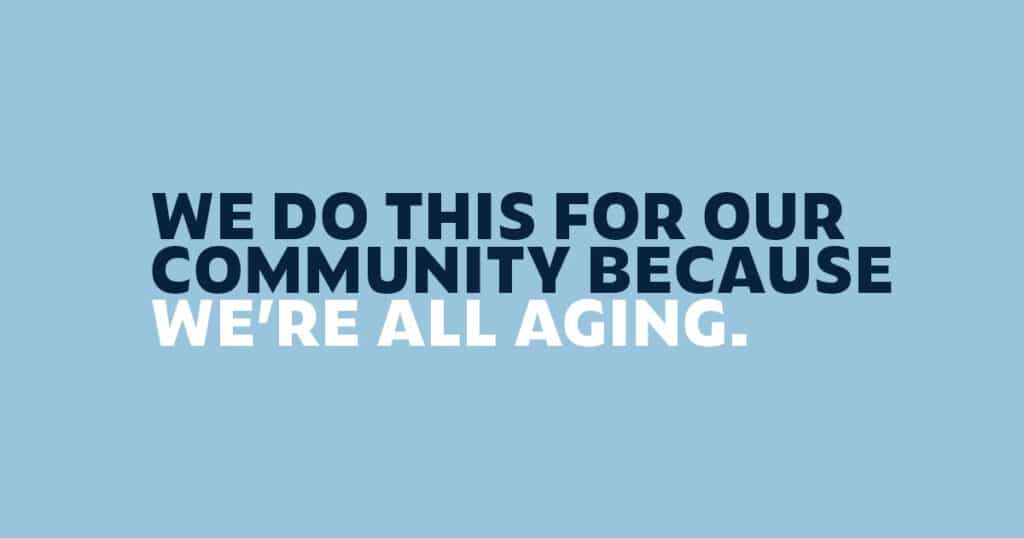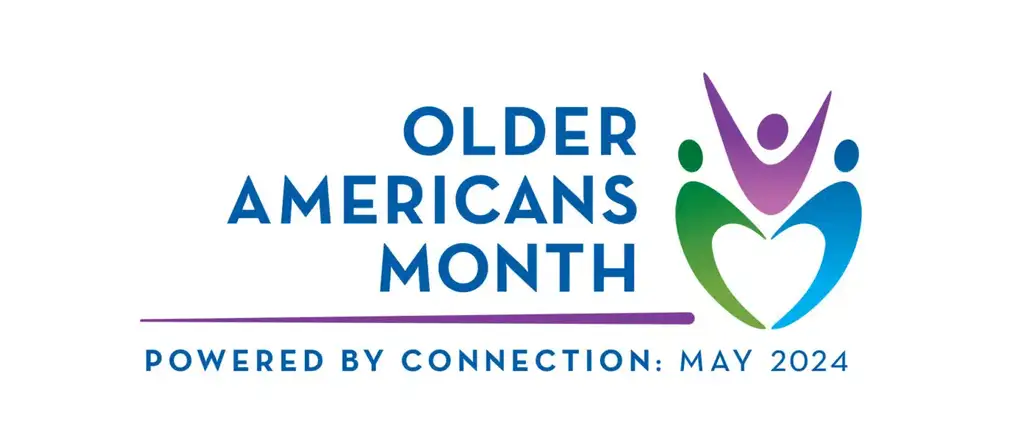Advocacy for Older Adults at The Senior Alliance
The Senior Alliance is dedicated to championing the rights and well-being of older adults. Our role includes advocacy—we are a vigilant observer and a vocal participant, actively monitoring, evaluating, and offering insights on a wide array of policies, programs, hearings, and community initiatives that have the potential to impact the lives of aging adults in our community.
We want to foster a community that respects, supports, and empowers its older members, ensuring that their golden years are lived with dignity.
Advocacy Platforms
Nutrition, health, and housing stability are fundamental needs that should be readily accessible for older adults and adults with disabilities. Your support is crucial in transforming our key objectives into actionable steps that yield tangible improvements in their lives. When we unite as a community to drive change, we can make an incredible impact with our collective efforts.
At The Senior Alliance, we believe that no issue is too small, and every concern deserves attention and action. We are committed to advocating for a comprehensive range of services and programs that directly enhance the quality of life for our community’s aging neighbors and those with disabilities. This includes:
- Home delivered meals that ensure nutritional needs are met without compromising independence.
- Elimination of waitlists, ensuring timely access to services.
- MI Choice Waiver services that offer alternatives to nursing home care.
- Long Term Care Ombudsman Program advocates on behalf of long-term care facility residents.
- Safety net programs that provide a crucial lifeline during times of need.
- MMAP (Michigan Medicare Assistance Program) offers vital counseling and assistance.
- Justice for victims of elder abuse, ensuring dignity and safety for all.
- SCSEP (Senior Community Service Employment Program) empowers through employment opportunities.
- Elimination of waitlists, ensuring timely access to services.
- Preventing workforce shortages in essential care sectors.
- MI Choice Waiver services that offer alternatives to nursing home care.
- Transparent public review of MI Health Link, ensuring quality and accountability.
- Reliable transportation services, enabling freedom and mobility.
- Prevention of elder abuse, safeguarding the well-being of our seniors.
- Expanded housing options, accommodating a range of needs and preferences.
- Increased outreach, ensuring that every individual is aware of and has access to our services.
- Broadband Internet access connects individuals to vital resources and communities.
Our mission is to advocate for these services and many more, addressing the unique challenges faced by older adults and adults with disabilities. Our advocacy platform offers a deeper understanding of our efforts, and you can learn how you can contribute to making a significant, lasting difference.
Support the Older Americans Act
Building on our commitment to enhancing the lives of older adults and adults with disabilities, we recognize the vital role played by the federal Older Americans Act (OAA). This pivotal legislation supports a broad spectrum of essential services for older adults and their caregivers. These services encompass home-delivered meals (Meals on Wheels), the Michigan Long Term Care Ombudsman Program, elder abuse prevention, non-emergency medical transportation, legal assistance, adult day care, evidence-based wellness programs, and several other crucial initiatives.
At The Senior Alliance, we are staunch advocates for the continuation and strengthening of these OAA programs and services. We collaborate closely with USAging in Washington, D.C., striving to ensure that federal lawmakers fully grasp the significance of the OAA for their constituents. Yet, the strength of our advocacy is vastly enhanced when it is echoed by voices from the community.
Find Your Senators
Your involvement is imperative. By communicating with members of Congress, you can amplify our collective voice, sharing impactful stories and examples of how these invaluable services have supported older adults and caregivers within our community. Your voice is not just heard; it drives change.
Call, e-mail, or write U.S. Senators Debbie Stabenow and Gary Peters, as well as your U.S. Representative today. Share a story of how one or more of these programs has impacted you or someone you know. It’s critical that our members of Congress understand how essential these programs are to older adults and caregivers. Use the Find Your Legislators tool on our website to find contact information for our government officials.
By supporting these programs, you are supporting the older adults in your community. Sign up for our advocacy newsletter, Colloquy, to receive monthly updates about our advocacy work, along with advocacy alerts that could use your support. Visit our website for more information about the ways we support advocacy or give us a call at 734-722-2830.









